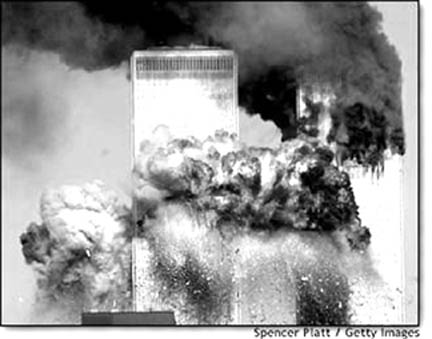A year marked by East Coast changes
September 12, 2002
Feelings of grief and uncertainty filled all of us just year ago. For two Simpson alumnae, the emotions were intensified by the events unfolding in the very cities they called home.
But, life did go on, and here’s how Simpson graduates describe the long process.
Susan Mordan, originally from Albia, Iowa, graduated from Simpson in ’91 and currently lives in Washington, D.C. She is an Education Specialist at the Library of Congress.
“I was at work at the Library on Capitol Hill [on Sept. 11],” Mordan said.
“I heard about what was happening over the phone and on the Internet.
“I literally ran from Capitol Hill to her house,” Mordan said. “We heard booms and thought there were bombs going off. We thought, ‘The Capital’s being bombed; we’re out of here!'”
A friend of Mordan’s lives about eight blocks away from Mordan’s workplace. Mordan quickly left the Hill area to be with her friend.
The booms Mordan heard were actually sonic booms of planes taking off from nearby Andrews Air Force Base.
After reaching her friend’s house, Mordan immediately started making phone calls.
“I just wanted to let people know that I was okay,” Mordan said.
Mary Rose Main, Simpson graduate of ’53, was at home in her Manhattan apartment when she got a phone call from a friend telling her about the terrible events.
“I turned on the TV and watched for a while,” Main said. “I honestly didn’t know what was happening. I kept trying to think of what I could do to help.”
Main took action by heading to her church, where people had already begun to gather.
“They were all very emotionally upset,” Main said. “They were wondering whether or not their loved ones were alive, if they had been in the towers that day and where their families were.”
Main’s heart went out to the innocent victims and their families.
“I stayed at the church and tried to be as comforting as I could,” Main said. “The church held many different services throughout the day, which I think helped people make it through.”
Both Mordan and Main note changes in themselves and their in homes since the attacks of Sept. 11. According to Mordan, the changes have been both subtle and large-scale.
Mordan will always recall helicopters flying over her neighborhood for the first seven months after the attack.
“It was weird to get used to the helicopters flying at all hours of the night,” she said.
“But then it was weird getting used to them not flying. It was eerie when they stopped; all very strange to get used to.”
Mordan saw a number of security precautions put into use in the city.
“There are no more garbage cans on the street and there aren’t as many mailboxes,” Mordan said.
“There are literally no places for people to hide bombs on the street. People actually take their garbage from their lunch breaks back into their office because there is nowhere to throw it away on the street.”
Other changes were obvious in Mordan’s everyday life.
“SUV’s are the biggest thing that can get down the street by the Library now,” Mordan said. “They make the trucks take a detour, just to be safe.”
“The employees at the Library used to be X-rayed before we went to work, now the security is much, much tougher,” Mordan says. “There are more safeguards, tons of barriers and lots of bureaucracy. But, you can never be too safe.”
While Mordan noticed many changes in security, Main noticed changes in people’s attitudes.
“So many people lost jobs and are hurt financially,” Main said. “The New Yorkers are just so appreciative that the Americans came to help clean up the disaster, sent in money and have since come back to visit New York.”
“This shows that people are not afraid. They still want to come and see all that New York has to offer,” Main said.
As far as safety and security goes, Main said she feels that New York City has made huge steps towards improvement.
“The police are doing a wonderful job,” Main said. “I don’t feel hampered by the security measures.”
As a result, life is starting to resume some elements of normalcy.
“The United Nations is opening next week, which is really great,” Main notes. “Also, Congress is holding its first joint congressional meeting in the Federal Trade Building.”
“We really have bounced back and made this a safe place to be again,” Main said.
After attending the U.S. Open in New York last week, Main said she is pleased to see people going about their lives. The eventwas a guarded, but the security did not keep the fans from enjoying it, Main said.
Despite improved security and public faith, Main still has feelings of disbelief over the events of Sept. 11.
“To think that something like this could happen in the United States just blows my mind. It certainly impressed me that we were no different than any other country,” Main said.
“But, I do not feel afraid. I refuse to feel afraid. You can’t live like that,” Main said.
Mordan agrees.
“I don’t live in panic,” Mordan said. “If you worry about one thing it just leads to another. I don’t wake up every morning scared, but it is always somewhere in the back of my mind.”













